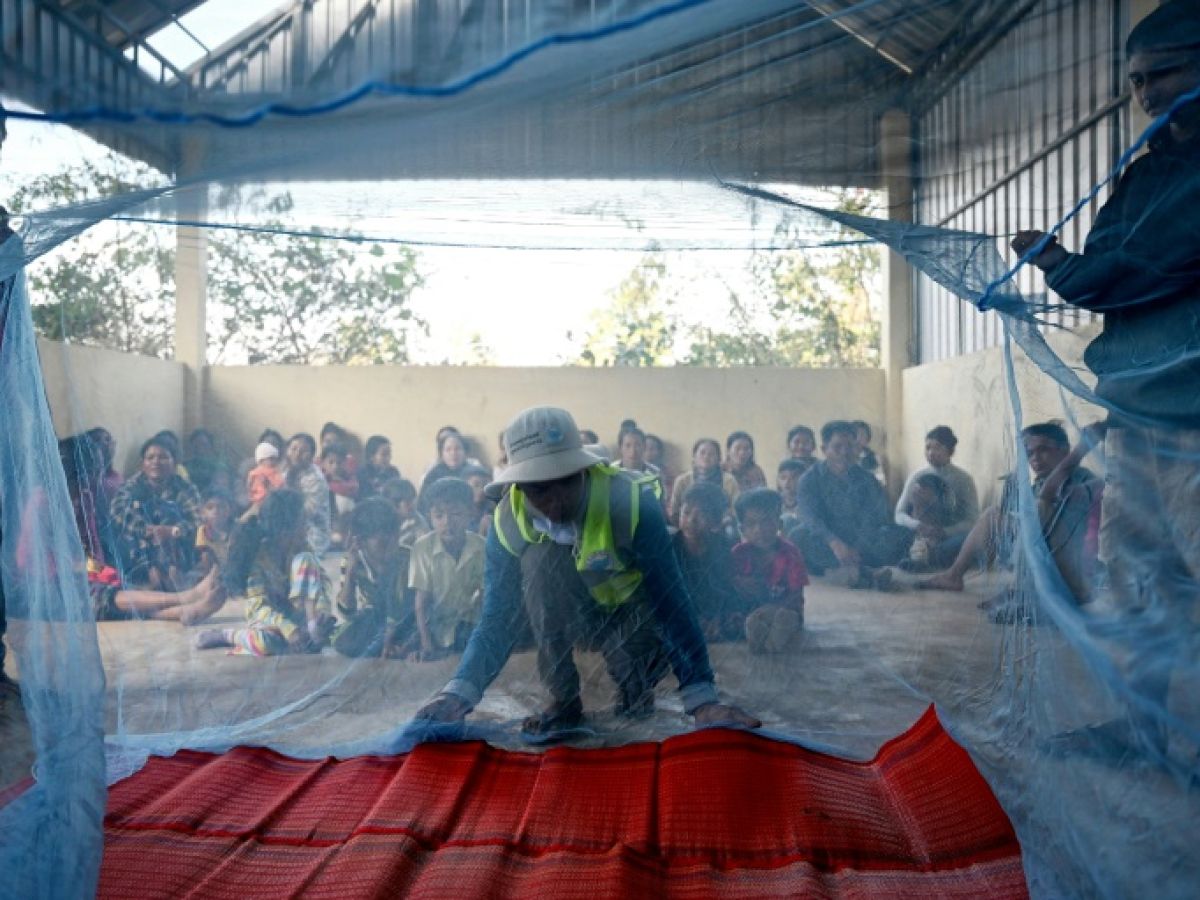Yeang Chheang is about to realize his dream, after sixty years of a career shattered by the violence of the Khmer Rouge: to drive malaria out of Cambodia.
"When we started the work, it was so difficult because we lacked staff with solid knowledge," recalls the 87-year-old retired scientist.
A small, poor country in Southeast Asia, Cambodia has made immense progress that suggests that by 2025 it will be possible to eradicate this disease, which continues to kill hundreds of thousands of people around the world each year.
Only 355 cases were detected in 2024, and the last death was in 2018, according to the authorities. In 1997 alone, the toll was 865 dead and 170,000 infected.
Malaria, also called malaria, is an infection caused by a tiny parasite transmitted by mosquito bites, which causes fever, headache and chills and becomes a serious, potentially fatal condition if left untreated.
Cambodia's first expert in medical entomology, Yeang Chheang began in the 1960s by collecting larvae and mosquitoes in the northeast, considered a hotbed of malaria.
The Khmer Rouge put an abrupt end to the search, during four years of terror that decimated the country: between 1975 and 1979, nearly two million people died of exhaustion, starvation, disease or as a result of torture and execution.
Yeang Chheang lost his wife, their son, three brothers, a sister, and his mother.
– Final phase –
Displaced in a labor camp, he continued his mission by treating malaria patients using tablets he collected from piles of medicine thrown on the streets as he left Phnom Penh.
Khmer Rouge cadres spared him after a senior commander, who had contracted malaria, was cured thanks to treatment he provided.

"Thanks to my medication, I was able to survive and I didn't have to work hard carrying earth or digging canals," he says.
"The tablets saved our lives," he adds, referring to himself and his three other sons.
After the fall of the ultra-Maoist dictatorship, Yeang Chheang joined a group of experts who took over a national malaria control programme.
The Cambodian government initiated a national plan in 2011 to eliminate the parasite by 2025.
Following the discovery of cases of resistance to antimalarial treatments, a source of therapeutic failures, the country is now using molecules considered more effective.
Huy Rekol, director of the National Center for Parasitology, Entomology, and Malaria Control, believes that the country is entering the final phase of the fight against malaria.
– Migrations –
Cambodia must maintain zero cases of indigenous malaria for at least three consecutive years to be certified malaria-free by the World Health Organization (WHO).
Marianna Trias, WHO representative in Cambodia, added that this certification could be "a strong example for other countries, which would inspire them to pursue the same objective."
If successful, Cambodia will be only the fourth country in Asia to achieve this feat, after China, Brunei and Singapore.
About two-thirds of the cases reported in 2024 come from remote areas of the northeast, where local volunteers have pledged to help fight the disease.
In the village of Pu Kesh, lost in the middle of the mountainous province of Mondulkiri, Nhoun Niyok carries out rapid screening tests, distributes medicines, and reminds villagers of the right practices to adopt, such as using mosquito nets treated with insecticide.

"Maybe the dream will come true," continues the 37-year-old volunteer. In the village, the last infection dates back to September 2024, he explains.
But experts warn that climate change, which can fuel mosquito proliferation, and cross-border transmissions involving migrants and nomadic populations could derail Cambodia's efforts.
Some of these initiatives were funded by the United States Agency for International Development (USAID), and with Donald Trump in power, the future of this aid is uncertain.
WHO estimates that there will be 263 million cases of malaria, eleven million more than the previous year, and 597,000 deaths worldwide in 2023.
After so many years, Yeang Chheang believes that eradicating malaria is "absolutely impossible" due to population migration.
"There will always be some... I don't think it will be completely eradicated."
